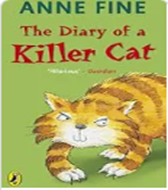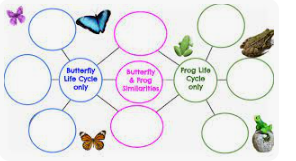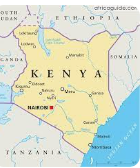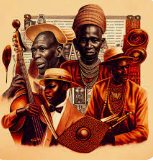Cherry (Y2)
Welcome to Cherry Class
Class teacher: Mrs Wilcox.
Supported by: Miss Lister.
This page is for our parents and children to use together. It includes information about what Y2 are learning, key dates, homework and helpful websites.
Spellings are sent home on Wednesdays and tested the following Wednesday.
PE for Cherry Class is on Tuesdays.
Reading books are changed on Fridays.
Homework is sent home at the start of each half-term and is due every Friday.
THIS TERM'S LEARNING
Summer 1
English
English
Our book for Summer 1.

The sequence of learning will develop children’s understanding of the story, characters, themes and language. The unit teaches reading, including fluency, vocabulary and comprehension, and meaningful writing, for a range of form, purpose and audience. The teaching of grammar and punctuation is embedded within analysis of the language and structures used to tell the story, through activities that explore the effect these might have on readers. The children are taught to apply what they have learned to their own writing, making choices to affect their readers’ thoughts and feelings. All learning culminates in a final piece of work..
(For more information about how we teach English at BJA, please visit our Writing page).
Phonics
At Brookfield Junior Academy we follow the Read Write Inc. phonics programme to promote fluent, confident readers who develop a love and enjoyment for reading.
- We aim to ensure every child is able to read at age related expectation, regardless of their background, needs or abilities.
- We aim to ensure all pupils, including the weakest readers, make sufficient progress to meet or exceed age-related expectations.
- We aim to ensure the teaching of reading develops pupils’ vocabulary, language comprehension and a love of reading.
- We aim to ensure pupils have the opportunity to enjoy a wide range of exciting stories, poems, rhymes and non-fiction.
The pupils are taught phonics daily, with extra tuition for targets pupils and with extra practice sessions in the lead up to the phonics screening check. The pupils will complete a ‘Read and Repeat’ cycle. This means each week each child will take home:
- 1 taught ditty/Story book
- 1 book bag book
- 1 ‘reading for pleasure’ book for their parents/ carers to read to them to develop a love of reading
It is expected that pupils are reading their phonics books '4 or more times a week'. Please make sure you evidence this in your child's planner. For more information please visit our Phonics page.
Below is a link to access Ruth Miskin's RWI portal videos to help you support your child's reading at home:
Don't forget to log on to spelling shed to practice your spellings.
https://www.edshed.com/en-gb/login
Maths
At BJA, we follow the White Rose Maths scheme of learning which underpins the values behind the mastery approach to teaching mathematics.There are many elements to the teaching and learning of Maths: it is not only the ability to calculate (being mathematically fluent) but also the ability to apply these skills to real life scenarios (solve problems and investigate) and also to talk knowledgeably about mathematical working (reasoning).
Fractions
Telling the time
Please click on the links below to view our Long Term Plan and Curriculum Intent. For more information on how we teach maths at BJA, please see our Mathematics page.
Below you will see a number of links for different websites to support your child with their mathematical learning.
Science
In Science we are learning about life cycles.
There are obvious links to PSHE in this unit in terms of reproduction. The concept that needs to be addressed in terms of the science, is that two adults produce offspring. The focus is on the fact that those offspring grow up, and produce offspring of their own. No details are needed of reproduction – but it is likely to be something the students ask about. Offspring is a good word to introduce to the students, as ‘babies’ can be misleading when discussing plants/seeds/eggs/larvae. However babies is acceptable if the students are more comfortable with it. This unit combines concepts from two topics in the programme of study. We will begin by looking at the concept of generations, and that there are different stages of human life. We will consider what is needed in general in order to stay alive, and then look more closely at whether living things have different needs at different stages of their lives. Having introduced the concept of life stages, we will then move on to look at life cycles, and how adult living things can produce offspring, which go on to become adults themselves, and produce offspring of their own.

Geography
This term we are focusing on - Where do people go on holiday? Non-European Country focus - Kenya
This unit builds on pupils’ understanding of their place in the world and the wider world in general learned in Year One, and compares their knowledge and understanding of their local area and lifestyle with that of a contrasting non-European country. It takes the pupils on safari to Africa where they visit Kenya and meet the people, wildlife and landscapes. They will learn where Kenya is on a map, learn about Kenya’s climate, wildlife, landscape, people and culture, and compare it to the UK.

Computing
Learners will learn to recognise that different devices can be used to capture photographs and will gain experience capturing, editing, and improving photos. Finally, they will use this knowledge to recognise that images they see may not be real.
RSHE
In RSHE we are learning
Fake news
Who am I?
How can I stay safe?
Music
In music we will be focusing on Kenya
This unit of work links to the Geography unit of work ‘Where do people go on holiday?’ focusing on Kenya. Pupils will take their inspiration from Kenya, exploring how create sound to represent three contrasting aspects of the country: The National Reserve of Masai Mara, the city of Nairobi and the busy markets. Through images and discussion, children will develop and idea of what each of these places would sound like and then use this to create their own soundscapes using musical instruments, producing a musical composition which they will perform in an ensemble.

Our Art will link to Geography and Music
Martin Bulyna – Artist study
Edward Tinga Tinga – Artist Study